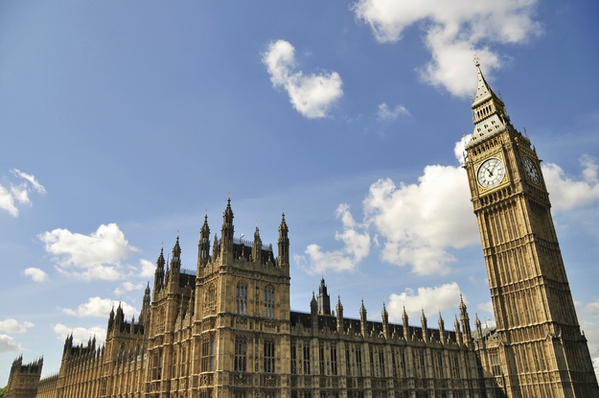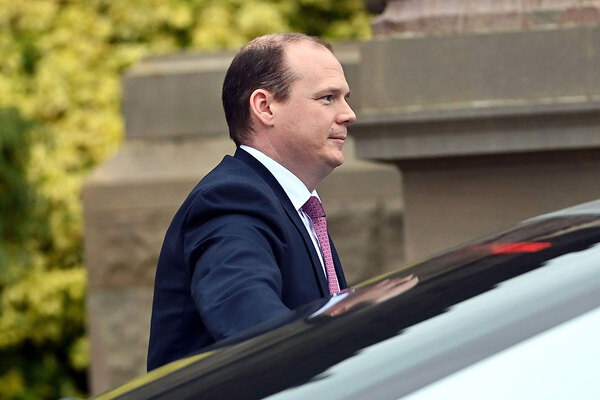Gaining ground
The UK Independence Party is known for its views on Europe, but does it have any policies on housing? Kate Youde finds out
The UK Independence Party won 147 seats in England in this month’s local elections - a gain of 139. While the views of Nigel Farage’s party on the European Union and immigration are well publicised, far less is known of its stance on housing. As UKIP’s influence on councils grows, we ask its housing spokesperson, Andrew Charalambous, an unelected private landlord, to outline its policies in five key areas.


Andrew Charalambous
Welfare and communities
On the hot topic of welfare reform, Mr Charalambous says UKIP would:
- reverse direct payments of benefits to claimants, and pay local housing allowance to landlords themselves
- scrap the bedroom tax
- pioneer the residents’ right to self-management in high-rise council blocks, controlling their own budgets and deciding what and when repairs should be done
- make ‘loitering with menace’ a criminal offence because some high-rise blocks are ‘hives of gang activity’. Police would have the power to break up gangs of youths loitering together in an aggressive manner
- commercialise estates and high-rise blocks with their own shops, youth centres and so on. The commercialisation of estates would attract investment and financial incentive to maintain common parts to a high standard
Planning and development
UKIP has ‘serious reservations’ regarding the national planning policy framework’s impact on the green belt, Mr Charalambous says. UKIP would establish a strategy for developing brownfield sites, including a ‘national brownfield decontamin-ation agency’ as a source of information for potential developers.
UKIP would also ensure councils have a duty to sell surplus land for development.
‘We would merge the planning and building control departments in local authorities,’ he adds, and ‘accelerate the planning process by introducing a system of “rapid generic approval” for non-contentious applications’.
Where planning decisions affect significant numbers of people, UKIP would establish binding referenda ‘enlivening and imbuing democracy into the planning process’.
Private rented sector
‘Instead of the two options on either end of the scale of buying or short-term annual tenancies, we would establish a third choice of three to five-year mediumhold leases,’ Mr Charalambous says. ‘This would balance the long-term liquidity of the landlord’s asset with security of future rental. Some such tenancies could, in theory, even attract a market renewal premium. On the other hand, it would provide greater stability and security of tenure for tenants.’
Affordability
On the subject of affordability, Mr Charalambous says UKIP would:
- provide government funding for affordable house building, ‘but it would work more towards brownfield sites’
- introduce a ‘supplementary deposit guarantee’ providing financial guarantees to facilitate lending for would-be house buyers with small deposits, but incomes which can sustain a mortgage
- scrap the 1 per cent stamp duty on properties between £120,000 and £250,000
- adjust housing affordability through interest rate dispensation
- ensure the allocations system for social housing, while supporting vulnerable households, prioritises people with severe disabilities, older people and those who wait longest or have the greatest local connections
- not aspire to restrict the rate at which rents and house prices rise. UKIP is a ‘free market’ party, Mr Charalambous says.
‘It is clear that the dominant pressure on housing in the UK has come from the unprecedented immigration of the last decade. Withdrawal from the European Union would be the only practical way to alleviate this effect on our housing demand,’ he adds.
Homelessness and empty homes
On the subject of homelessness, Mr Charalambous says UKIP would:
- introduce a zero rate council tax for landlords of empty properties during reasonable periods of repair
- introduce an interest-free government loan scheme for landlords who want to upgrade derelict properties for rent. Loans would made on the condition owners agree to let the property at an agreed 10 per cent below market value for three years
- make provision for peppercorn rent assured shorthold tenancy agreements so tenants could legally rent derelict properties while undertaking the repairs themselves in exchange for pre-agreed rent-free periods
- extend local housing allowance to include bounty payments for tenants moving into and taking on responsibility for refurbishing sub-standard properties
- remove VAT and its replacement Local Sales Tax from the costs of conversion of listed buildings, buildings in conservation areas and on empty buildings
- would set up a national register of homeless people to give them greater mobility in being housed
- use social enterprises as a vehicle for providing accommodation and employment to homeless people
- establish special open-door GP surgeries to cater for the specific healthcare needs of homeless people
What the sector thinks
‘It is good UKIP appears to recognise the damage that many of the current welfare reforms are doing. We would welcome proposals to scrap the bedroom tax, to allow housing benefit to be paid direct to landlords, and to introduce longer tenancies in the private rented sector. We would urge UKIP - like all political parties - to prioritise delivering a step-change in the building of new houses and to call a halt to the current cuts to benefits.’
Duncan Shrubsole, director of policy and external affairs, Crisis
‘We are not going to build 250,000 homes nationally if we do not address the issues of some urban growth into marginal greenfield territory, and new towns. A strategy focusing purely on brownfield sites just won’t cut it. UKIP’s ideas are a bit of a ragbag of different policies; some of which I would agree with, some which look like stuff that’s been thrown together and not thought through. It’s a curate’s egg.’
Rod Cahill, chief executive, Catalyst Housing Group
‘At first glance, these are a collection of reasonable proposals - except for those relating to migrants - many of which exist or have existed in previous regimes. The duty on councils to sell land for development would be welcomed but is already happening. Local democracy on planning issues is good in theory but often counter-productive when relating to social housing or supported housing schemes because of nimbyism.’
Tom Murtha, chair, Hact










